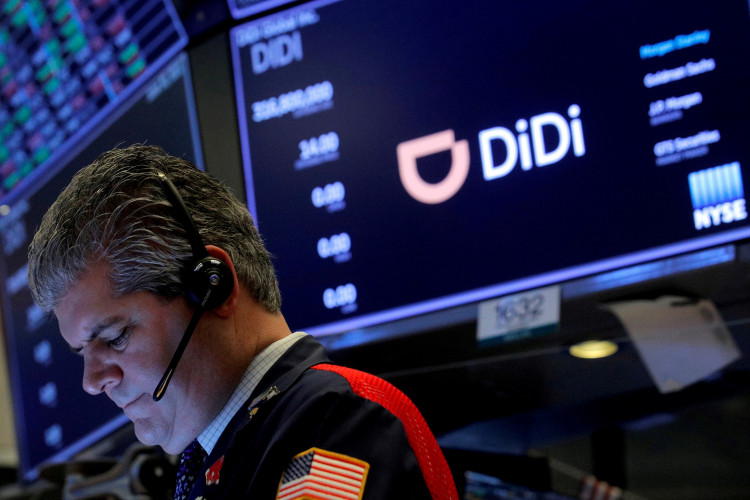Chinese officials have urged Didi Global Inc's top executives to craft a plan to delist from U.S. stock exchanges because of security concerns, Bloomberg News reported Friday.
China's technology regulator wants executives to delist the business from the New York Stock Exchange due to concerns over data leaking, the report claimed, citing people familiar with the case.
Didi, previously heralded as the company that can unseat Uber in China, has now been elevated to the status of a test case for a broader Chinese government effort to rein in the influence of internet titans.
According to the report, China's Cyberspace Administration urged Didi Chuxing to finalize plans and lay out details to exit the U.S. stock market, subject to government approval.
Based on reports, options include a straight-up privatization or a Hong Kong listing. If the firm opts for privatization, the offer will almost certainly be at least equal to the price of the June initial public offering, as a lower offer could result in lawsuits or shareholder pushback.
If the privatization succeeds, the proposal will almost certainly be at least $14 a share, the report said, citing sources, because a lower offer so soon after the June initial public offering could result in lawsuits or shareholder resistance.
On the other hand, if Didi Chuxing opts for a secondary listing in Hong Kong, the IPO price will almost certainly be lower than the share price in the United States. However, no final decision has been made, and the Chinese authorities may withdraw their request.
Bloomberg said a state-directed privatization would be unusual for a major private company in China, and the penalty for Didi Chuxing is particularly severe in comparison to Tencent and Alibaba, as the government viewed Didi Chuxing's IPO choice as a challenge to Beijing.
Since the summer, regulators have considered delisting Didi, after the world's largest ride-hailing entity upset officials by proceeding with its U.S. IPO, Bloomberg reported.
An exit from U.S. stock exchanges might raise fears of a Chinese company exodus as China and the U.S. dispute over access to listed firms' documents. On Thursday, a senior Chinese regulatory official stated that such delistings would be detrimental to bilateral relations, while expressing broad support for Hong Kong as an alternative course.
The Chinese government, eager to promote China's President Xi Jinping's vision of wealth sharing or "common prosperity," has targeted a vast internet sector that has amassed massive wealth by operating outside the law.





